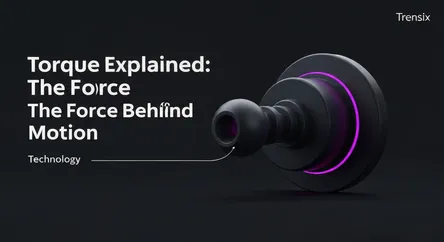Technology
Torque Explained: The Force Behind Motion

What is torque and why does it matter for your car? Discover the rotational force that determines acceleration, towing power, and driving feel.
What is it?
Torque is a measure of rotational force. In simpler terms, it's the twisting power that causes an object to rotate around an axis. Think of using a wrench to tighten a bolt; the force you apply to the handle creates torque that turns the bolt. In vehicles, engine torque is the rotational force produced by the crankshaft. Measured in Newton-meters (Nm) or pound-feet (lb-ft), it's the fundamental force that gets your wheels spinning and your car moving from a standstill. It's distinct from horsepower, which measures the rate at which work is done.
Why is it trending?
The conversation around torque has intensified with the rise of electric vehicles (EVs). Unlike internal combustion engines that need to build up revs to reach peak torque, EVs deliver their maximum torque almost instantly. This "instant torque" is a major selling point, providing exhilaratingly rapid acceleration from zero. This key performance differentiator is a frequent topic in EV vs. traditional car debates and marketing campaigns, keeping the term in the automotive spotlight.
How does it affect people?
For the average driver, torque directly translates to the car's responsiveness and capability. High torque, especially at low engine speeds (RPM), makes a car feel quick and powerful off the line. It's crucial for tasks like towing heavy loads or climbing steep hills without the engine straining. Understanding torque helps consumers choose the right vehicle for their needs, whether they're looking for the thrilling acceleration of an EV, the hauling power of a truck, or the smooth performance of a daily commuter.